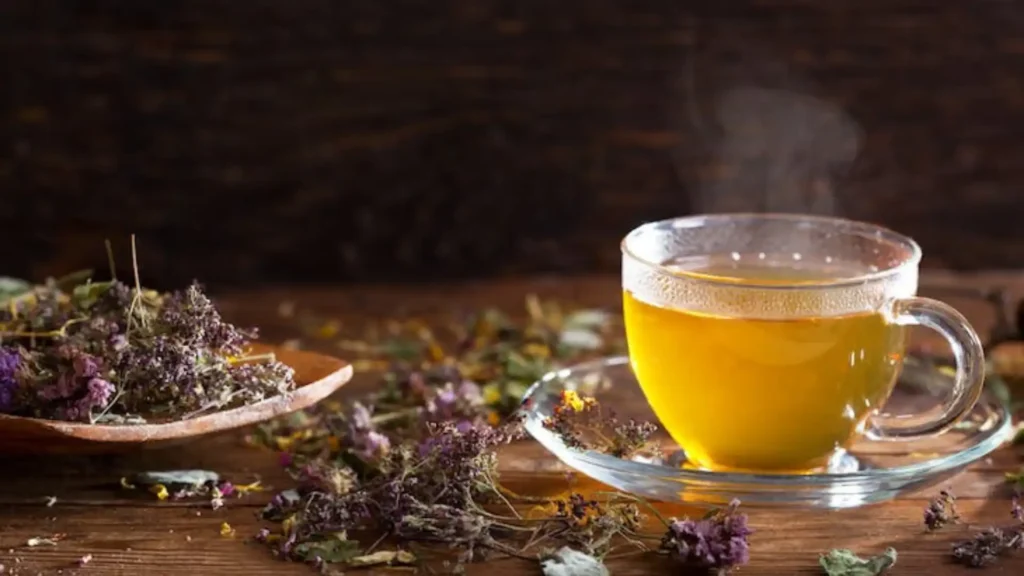Your body requires sleep to handle essential metabolic processes, such as those controlling heart health, immune function, hormonal balance, and brain activity. Individuals who experience chronic sleep deprivation are at a higher risk of imbalances in blood sugar and cholesterol, weight gain, injuries, and mood disturbances. sleepytime tea
Having a cup of tea before bedtime can help soothe your mind, aiding in better sleep. Green tea and certain herbal infusions contain amino acids, aromatic elements, and flavonoids, all of which contribute to reducing stress, relieving anxiety, and encouraging relaxation in different ways.
1. Chamomile Tea
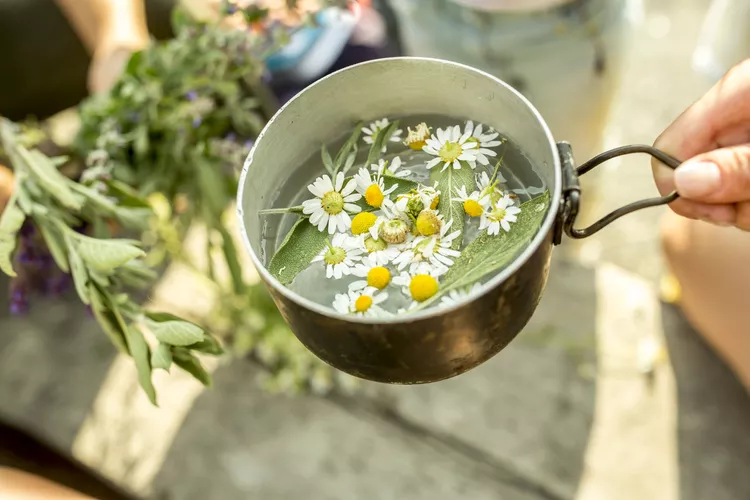
Chamomile tea is a well-known choice for soothing the nerves, and it’s easy to see why. This herbal infusion contains aromatic compounds like apigenin, chamazulene, bisabolol, and farnesene, all of which can help promote relaxation and enhance sleep quality. Additionally, these compounds work synergistically to provide a calming effect on the body.
A study involving 128 participants evaluated the impact of chamomile essential oil on stress, anxiety, and sleep. The results indicated significant reductions in both anxiety and stress, as well as a slight decrease in cortisol levels, which can contribute to difficulties with falling asleep or chronic insomnia.
2. Valerian Root Tea
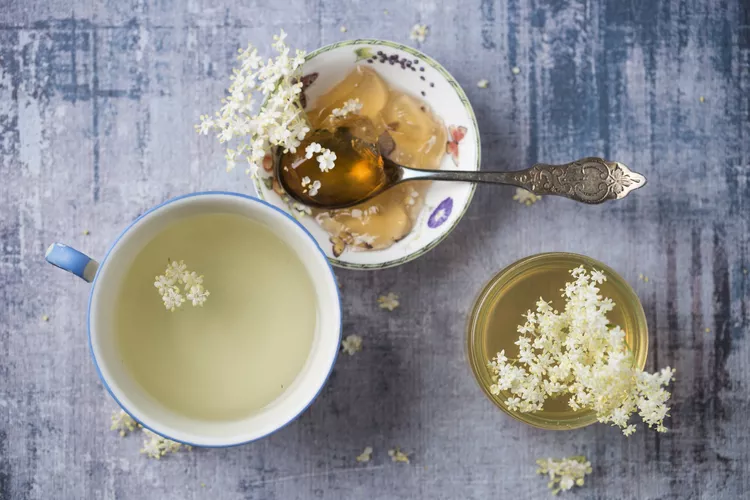
Valerian root has been used to address sleep disorders since the Middle Ages. To prepare valerian tea, steep the dried root in hot water, allowing the active compounds to be released.
Research indicates that this tea can boost serotonin production, leading to calming and sedative effects. Additionally, it may alleviate anxiety by activating adenosine, a chemical involved in mood regulation and anxiety reduction.
The exact mechanisms behind its effects are unclear, as studies have shown inconsistent results. Water-based extracts of Valerian are thought to be more effective than alcohol-based tinctures, though using the whole root may promote deeper relaxation and improved sleep compared to isolated plant extracts.
While Valerian is generally considered safe, it may cause side effects such as headaches, cramps, and nausea. It is not recommended for pregnant or breastfeeding individuals, children under three, or those taking sedative medications like Xanax (alprazolam), Valium (diazepam), or depressants like Nembutal (phenobarbital). It’s also important to avoid combining Valerian with other herbs or supplements that have sedative properties, such as St. John’s Wort, kava, or melatonin.
3. Lavender Tea
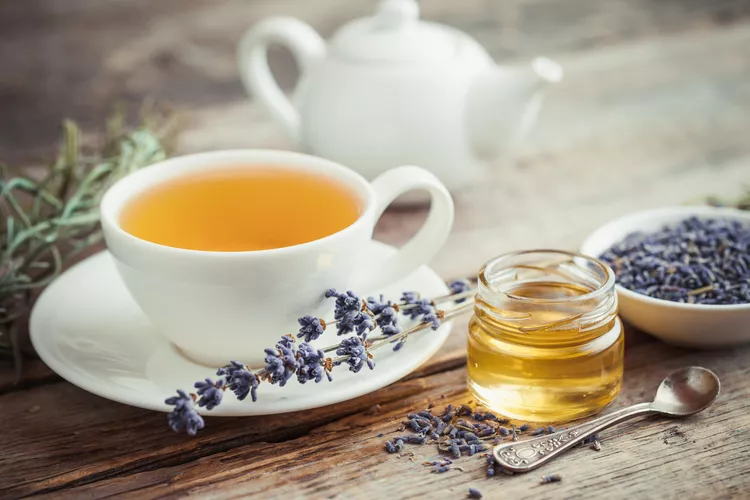
Lavender’s key components, linalool and linalyl acetate, which give it its pleasant fragrance, may help you prepare for restful sleep. These compounds work by blocking certain brain receptors that trigger anxiety and by enhancing the part of your nervous system responsible for relaxation.
In a study of 79 college students who reported sleep difficulties, using lavender essential oil along with a calming bedtime routine significantly improved sleep quality.
Another study found that lavender tea reduced anxiety and depression in older adults. Participants in the experimental group drank lavender tea, made from a 2-gram tea bag, twice daily (morning and evening) for two weeks, with significant results reported by the researchers.
Lavender tea is made from the dried buds of the lavender plant, which release the compounds and aromas that encourage relaxation. Lavender is generally regarded as safe and well-tolerated.
4. Passionflower
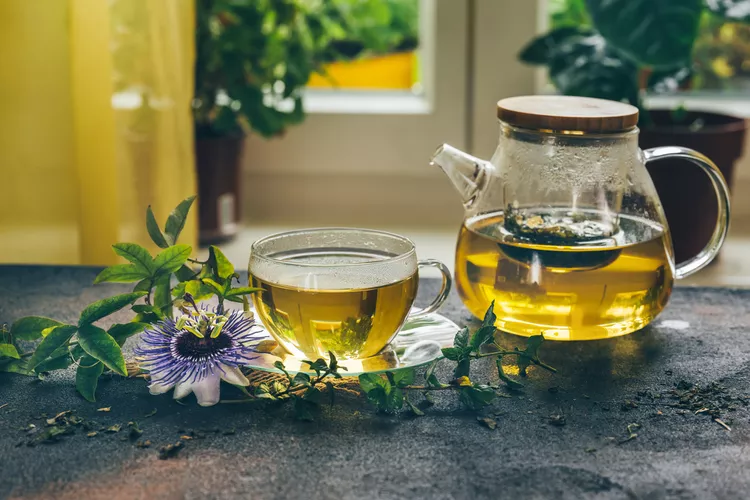
Research indicates that passionflower may help alleviate stress, reduce anxiety, and assist with insomnia. When taken in concentrated forms (such as 45-drop extracts or 500 mg tablets), its effects on anxiety relief have been found to be comparable to tranquilizers like Serax (oxazepam), according to one review.
Although passionflower tea is less concentrated, it can still be beneficial as a sleep aid. Passionflower contains a flavonoid called chrysin, a plant compound with medicinal properties. Studies suggest that chrysin may help ease anxiety and depression and also offer calming and mood-enhancing effects.
Passionflower is generally considered a safe and effective remedy, with no reported adverse side effects.
5. Ginkgo Biloba Tea
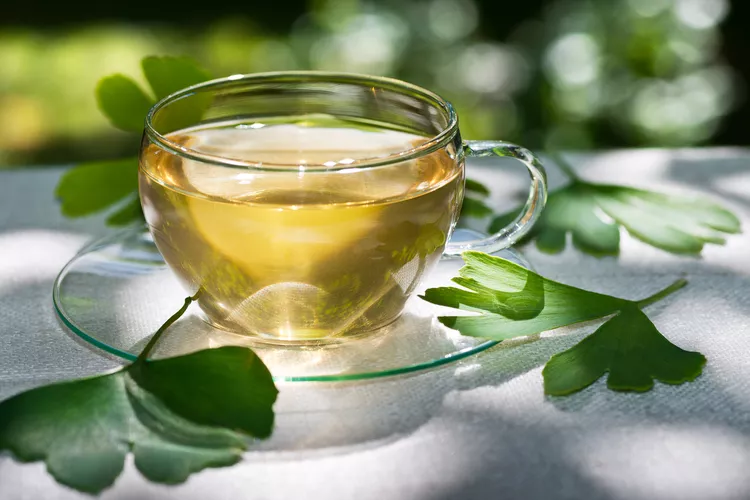
Ginkgo leaf tea, steeped for 10-15 minutes, has a pleasant taste and offers moderate to high antioxidant benefits, likely due to its rich content of flavonoids and terpenoids, compounds known for promoting health.
Some studies suggest that ginkgo biloba may help calm the mind by influencing gamma-aminobutyric acid (GABA), an amino acid that reduces nervous system excitability. Achieving a more relaxed state through this mechanism can lead to improved sleep quality.
Research on individuals with dementia showed that ginkgo enhanced GABA response, improved mood, and reduced anxiety. However, further studies are required to fully understand ginkgo biloba’s effect on GABA activity and its potential for anxiety relief.
Ginkgo leaf extracts are generally considered safe, though minor side effects like stomach discomfort and headaches may occur. However, it is not recommended for individuals with bleeding disorders or those taking anticoagulants. People using non-steroidal anti-inflammatory drugs (NSAIDs) should also exercise caution.
6. Ginseng Tea
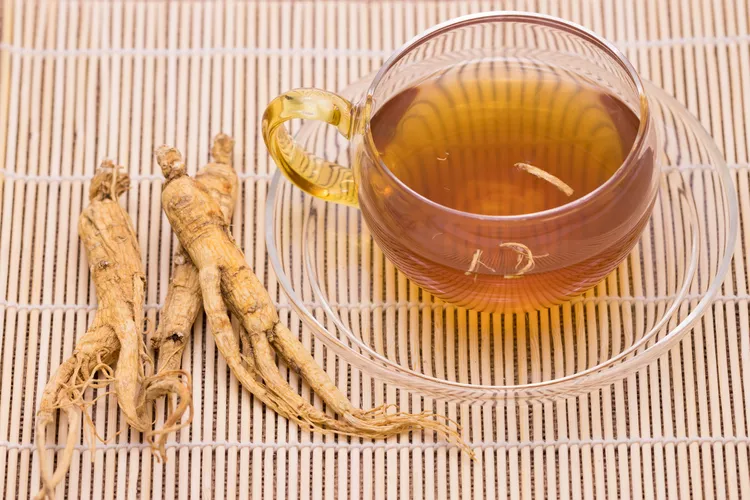
Ginseng contains adaptogens, which are compounds that help maintain calm and balance. The main compounds in ginseng, called ginsenosides, may regulate stress more effectively than other adaptogens. This stress-regulating effect has been demonstrated in multiple human studies.
Traditionally used as a sedative in Asian countries, ginseng may also improve sleep quality. In one study, 15 healthy men aged 15-37 took 1500 mg of ginseng three times daily for seven days. They experienced significant reductions in wake time, improved sleep quality, and longer periods of deep sleep. Deep sleep is essential for supporting physical health, emotional well-being, and cognitive function.
However, ginseng should not be used by individuals taking anticoagulants, such as Coumadin (warfarin). Consult your healthcare provider to ensure there are no interactions with any medications you are currently taking. sleepytime tea
7. Green Tea
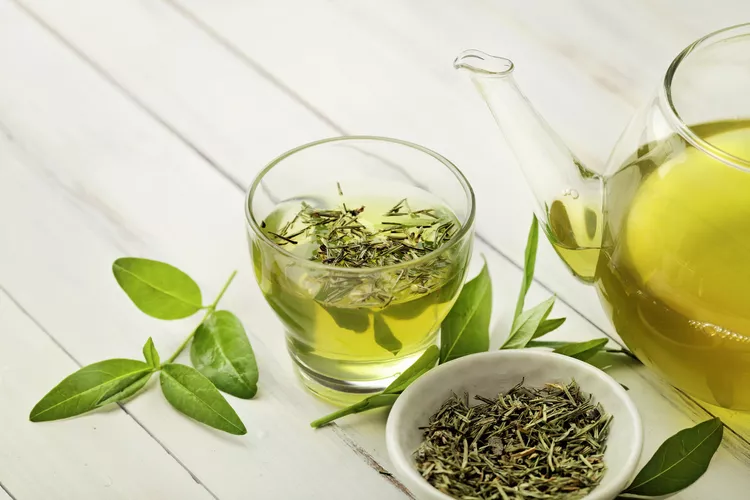
Green tea contains various compounds, such as flavonoids and amino acids, which help manage stress and may contribute to better sleep.
One notable amino acid in green tea is L-theanine, which influences brain chemistry to encourage relaxation, focus, and potentially improved sleep. It supports balanced stimulation, which is crucial for maintaining a healthy sleep-wake cycle.
L-theanine also interacts with two other compounds in green tea: epigallocatechin (EGC), a flavonoid, and arginine, another amino acid. Together, these compounds help counteract the effects of caffeine, which can disrupt sleep. As a result, if you’ve had coffee later in the day, green tea might help stabilize your nervous system and enhance sleep quality.
8. Rooibos Tea
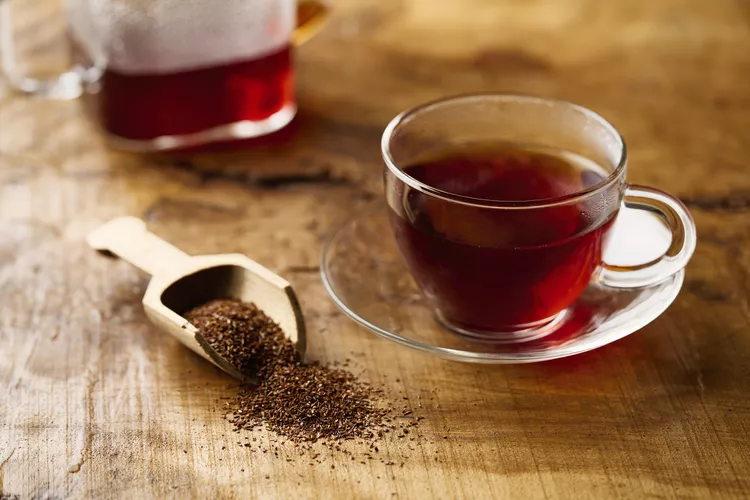
Rooibos is a herbal infusion rich in flavonoids, derived from the stems and leaves of the Aspalathus linearis plant. It has traditionally been used to relieve anxiety, tension, and sleeplessness.
Key flavonoids in rooibos include dihydrochalcones, aspalathin, nothofagin, orientin, vitexin, and rutin. Research suggests that these flavonoids may significantly influence hormones related to anxiety and stress. sleepytime tea
Cortisol, commonly known as the “stress hormone,” increases in response to stress, keeping the body in a heightened state of alertness. Elevated cortisol levels are linked to sleep disorders.
Tips for Drinking Tea Before Bed
Incorporating tea into your bedtime routine can enhance your sleep quality. To ensure your tea remains enjoyable, avoid over-brewing. Herbal teas are caffeine-free and unlikely to disrupt sleep, but it’s best to limit consumption to one cup and finish it an hour or two before bed to avoid nighttime bathroom trips.
Green tea, which is made from Camellia sinensis, contains some caffeine. A typical cup has about 30-40 milligrams, though the exact amount depends on the strength of the brew. If you plan to drink it near bedtime, consider making it more dilute.
Additional Sleep Improvement Tips
- Minimize stimulation and establish a regular sleep schedule.
- Avoid stimulants at least four hours before bed. sleepytime tea
- Refrain from eating spicy or heavy meals to prevent acid reflux.
- Ensure your bedroom is quiet, dark, and comfortably cool. sleepytime tea
- Maintain consistent sleep and wake times.
- Reserve your bed for sleeping—avoid activities like watching TV or using your computer in bed.
A Quick Review
A good night’s sleep helps you stay focused and restores your body’s functions, promoting energy and setting a positive tone for the day. However, overstimulation, anxiety, and stress can disrupt sleep.
Drinking a soothing tea can help relieve stress that may prevent sleep. Herbal teas and green tea contain compounds such as flavonoids, aromatic compounds, and amino acids, which help calm the body and promote relaxation. Flavonoids like chrysin, aromatic compounds such as linalool, bisabolol, and apigenin, and amino acids like L-theanine are particularly beneficial for sleep.
A relaxing cup of tea, paired with good sleep hygiene, can be an effective way to support a restful night’s sleep. sleepytime tea
Discover more trends:
- Healthy Breakfast Ideas: The 12 Best Foods to Eat in the Morning
- Ovaltine Healthy? Benefits, Ingredients, and Nutritional Value Explained
- 10 Best Foods to Eat If You Have Arthritis
- Watch Out For The Early Signs Of Rheumatoid Arthritis
- Follow us on Facebook
- Follow us on Pinterest







